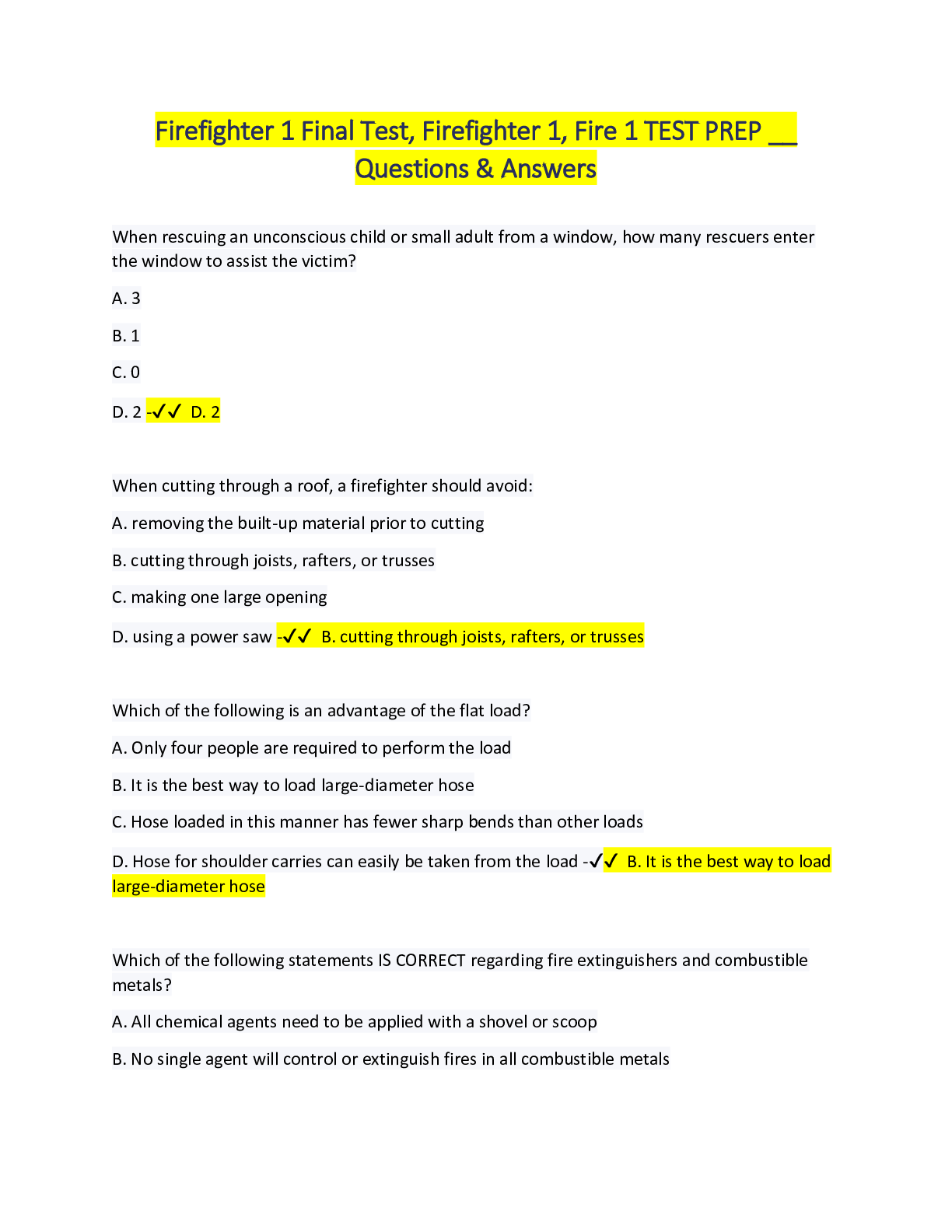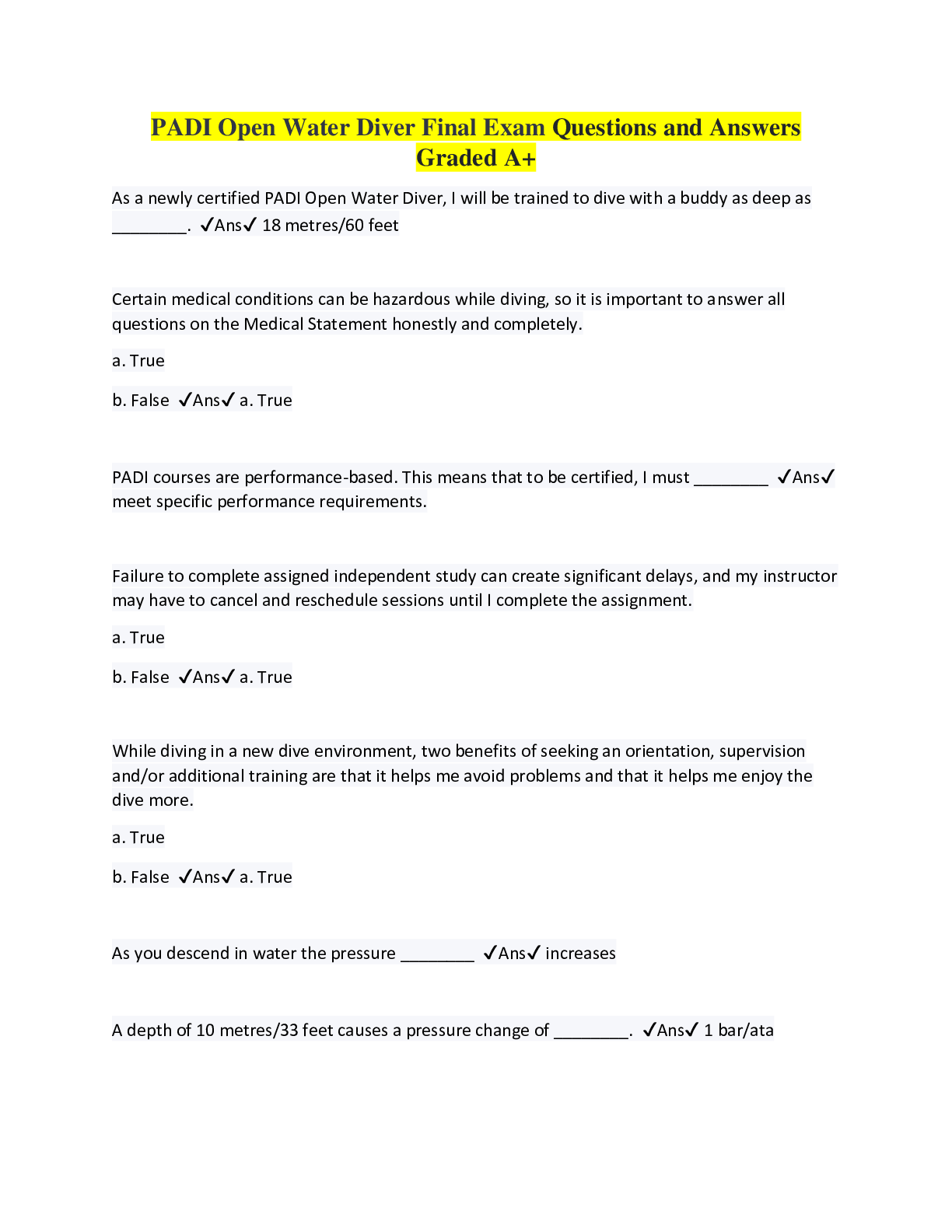Medicine > QUESTIONS & ANSWERS > ASCP MLS Questions and Answers Graded A+ (All)
ASCP MLS Questions and Answers Graded A+
Document Content and Description Below
ASCP MLS Questions and Answers Graded A+ What feature is most often found with patients with a splenectomy on a Wright's stained blood smear? Answer✔✔ Howell-Jolly bodies Patients with antib... ody to the following antigen are immune to Hepatitis B: Answer✔✔ Surface antigen (HbSAg) Which two of the following tests are helpful for documenting previous Streptococcal throat and skin infections: Answer✔✔ ASO titer and Anti-DNase B In mass spectrometry, the "appearance potential" is defined as the: Answer✔✔ Minimum energy required for the appearance of a particular fragment ion in mass spectrum What is generally accepted as the lower threshold value for semen pH from fertile males? Answer✔✔ 7.2 Coulometry: Answer✔✔ An automated method for measuring chloride which generates silver ions in the reaction Erythroleukemia: Answer✔✔ Also known as Acute Myelogenous Leukemia type M6. This type is associated with either the presence of both erythroid and myeloid precursors OR strictly erythroid precursors. Myelomonocytic leukemia Answer✔✔ Is associated with an increase in myeloid and monocytic cell precursors, but not red blood cell precursors Species that are Lysine (+), arginine (=) and ornithine (+): Answer✔✔ Enterobacter aerogenes, Edwardsiella species and most Serratia species Lysine reaction for all Citrobacter: Answer✔✔ Negative Key identifying characteristic for Pantoa (Enterobacter) agglomerans: Answer✔✔ negative reactions for the three decarboxylases commonly tested ( Lysine, arginine and ornithine) Which organism is MOST likely responsible for septic reactions associated with Red Blood Cell transfusions? Answer✔✔ Yersina entercolitica is most likely responsible for septic reactions in transfusions of Red Blood Cells. This organism is usually acquired by ingestion of contaminated food and causes mild symptoms of abdominal pain and diarrhea. Growth of Y. entercolitica is enhanced in iron-rich environments such as red cell components. Gaucher's disease Answer✔✔ The most common lysosomal storage disease caused by insufficient activity of the lysosomal enzyme glucocerebrosidase that leads to the deposition of glucocerebroside in cells of the macrophage-monocyte system. Diseases associated with dysfunctions of polymorphonuclear neutrophils (PMNs) Answer✔✔ Chediak-Higashi syndrome (CH), Chronic granulomatous disease (CGD), Myeloperoxidase deficiency (MPO) [Show More]
Last updated: 2 years ago
Preview 1 out of 20 pages
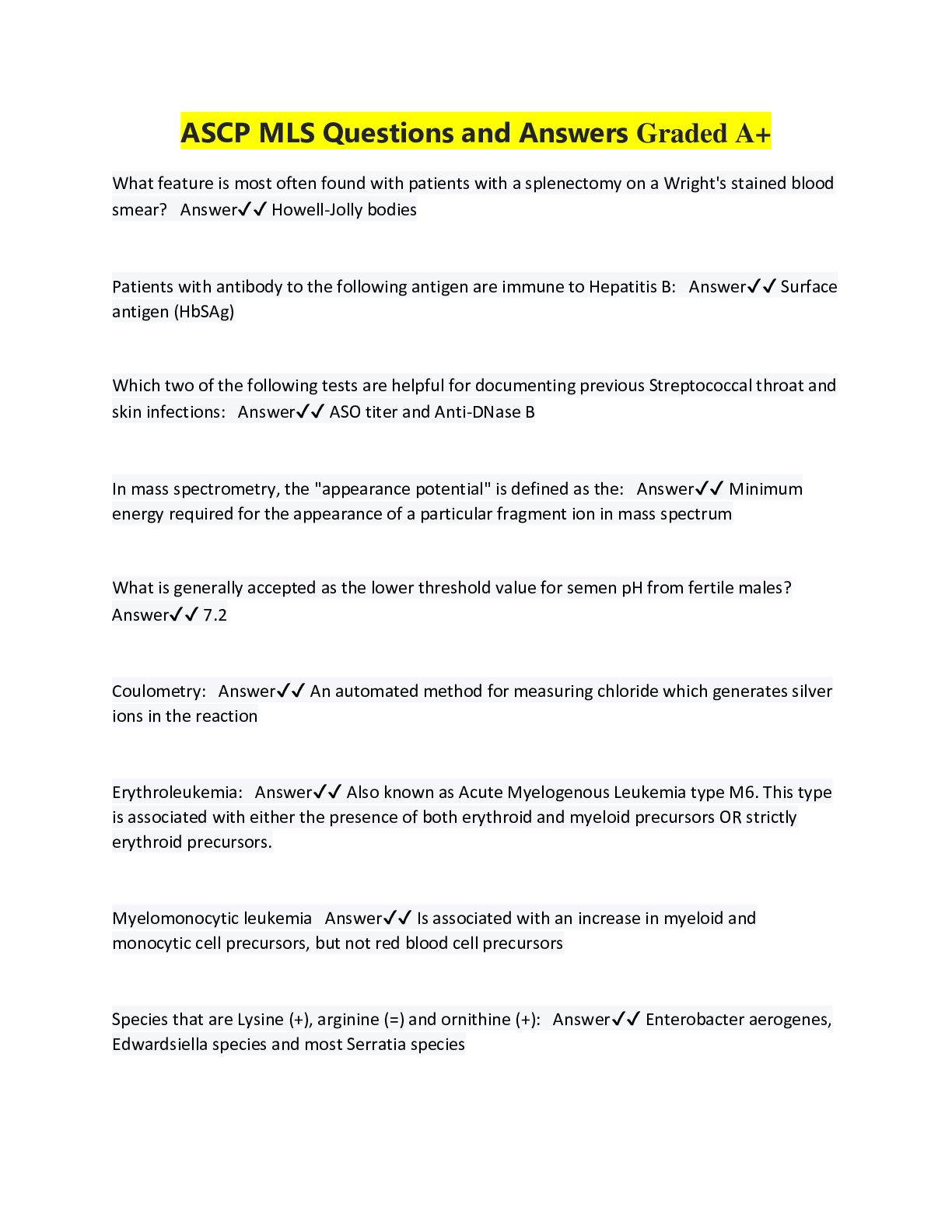
Buy this document to get the full access instantly
Instant Download Access after purchase
Buy NowInstant download
We Accept:

Reviews( 0 )
$9.50
Can't find what you want? Try our AI powered Search
Document information
Connected school, study & course
About the document
Uploaded On
Mar 03, 2023
Number of pages
20
Written in
Additional information
This document has been written for:
Uploaded
Mar 03, 2023
Downloads
0
Views
94
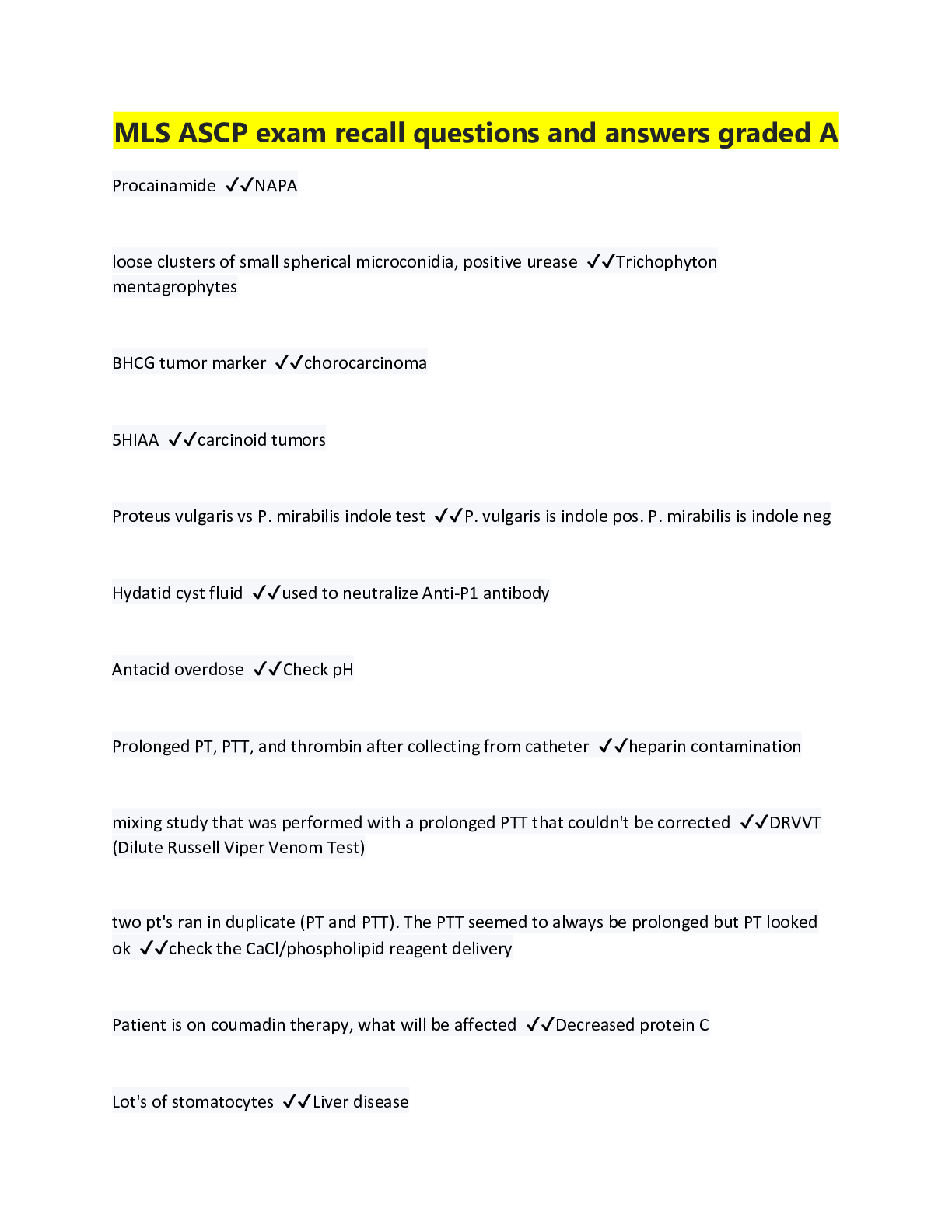


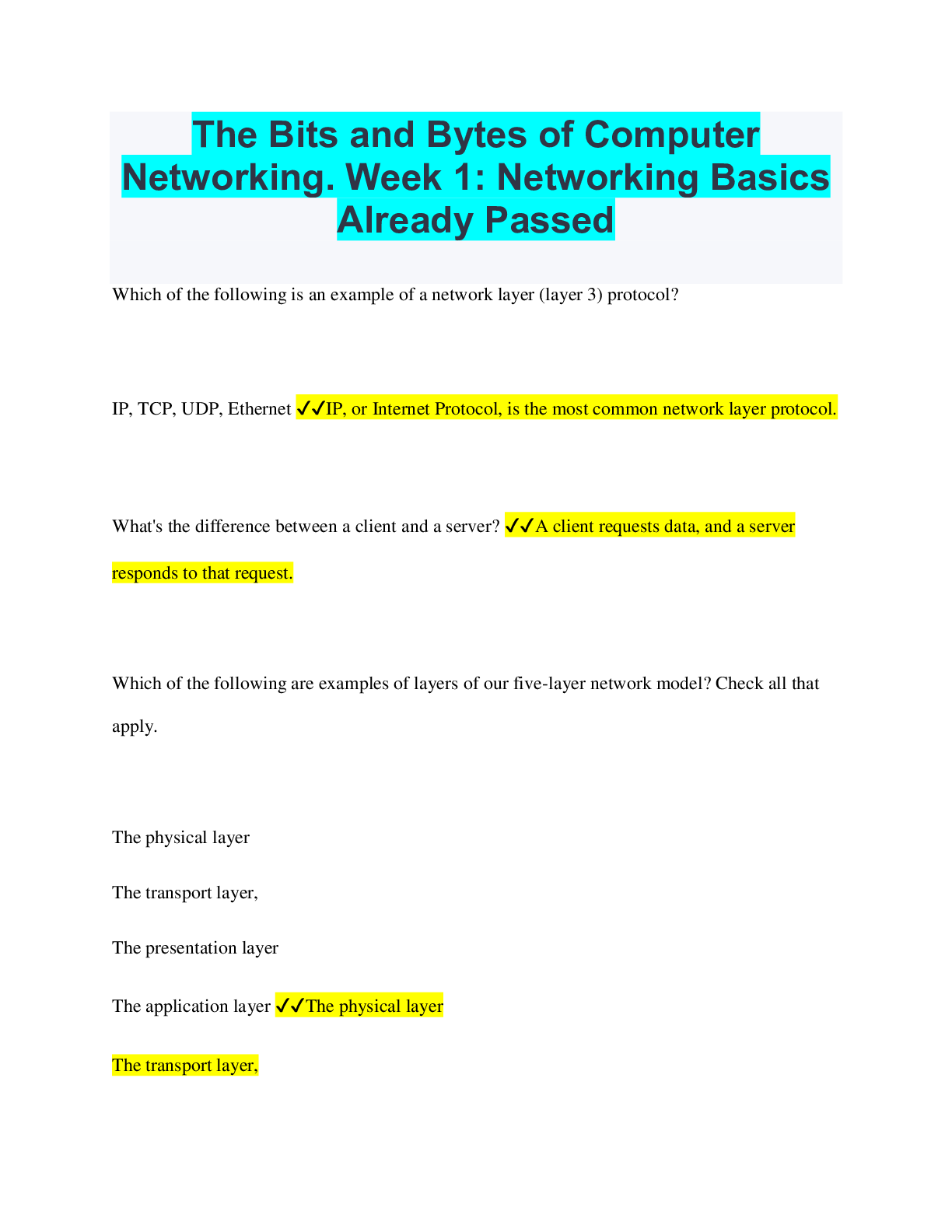
 Answered 2023.png)


